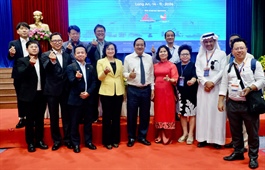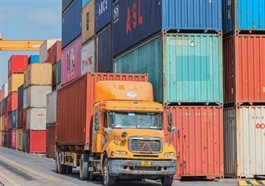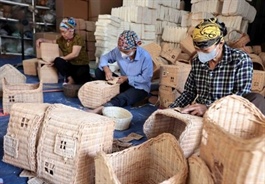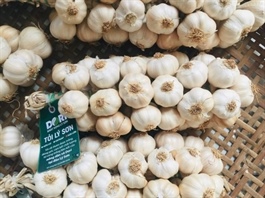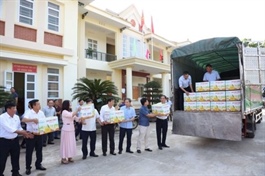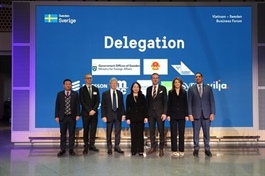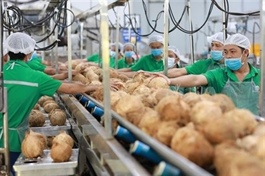Seminar helps Vietnamese food exporters explore halal market
Seminar helps Vietnamese food exporters explore halal market
As a top 20 food-exporting country, Việt Nam has great potential to tap into the rapidly growing global halal industry, a workshop heard in HCM City on Thursday.
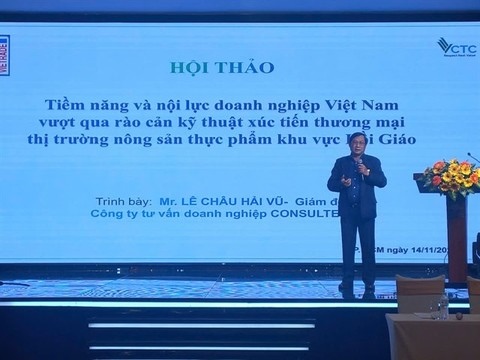
At the workshop on Trade Promotion of Halal Food Products in HCM City on November 14. — Photo courtesy of moit.gov.vn |
Organised by the Việt Nam Trade Promotion Agency at the ongoing annual Việt Nam International Food Industry Exhibition, the workshop on Trade Promotion of Halal Food Products sought to help businesses promote exports to gradually make Việt Nam a prominent global supplier.
Halal refers to foods and services that comply with Islamic dogma.
Nguyễn Minh Phương of the Ministry of Industry and Trade's Asia – Africa Market Department, said the global Muslim population is forecast to increase to over 2 billion by 2030, or 25 per cent of the global population, translating into significant demand for halal products.
More than 60 per cent of the global Muslim population is in Asia while 20 per cent live in the Middle East and North Africa, she said.
Demand for halal products extends beyond traditional Muslim-majority nations to other consumers who value the quality, safety and sustainability that Halal-certified products represent, and in fact, businesses capable of producing halal goods find it easier to enter demanding markets, she added.
Lê Châu Hải Vũ, director of Consultech JSC, said the global Halal market is estimated to value at over $2 trillion currently and is expected to increase to $2.8 trillion in the coming years.
He said Việt Nam has great potential to export in this area as a top 20 food exporter and top 15 agricultural produce exporter.
It exports products meeting standards such as VietGap, GlobalGap, HACCP, and others similar to halal, and a transition to halal is highly feasible, he said.
But both Phương and Vũ also referred to challenges in entering the halal market like a lack of unified halal standards and certification processes globally, high costs and fierce competition.
They also said the businesses need to learn about customs and consumption trends in target markets before exporting.
Phương said they need to proactively participate in halal trade promotion programmes.
At the event, experts also told firms how to register for halal certification and the latest global regulations.



